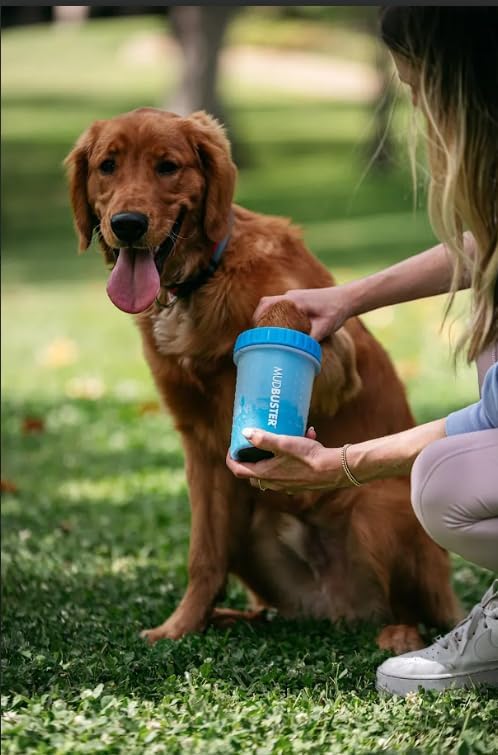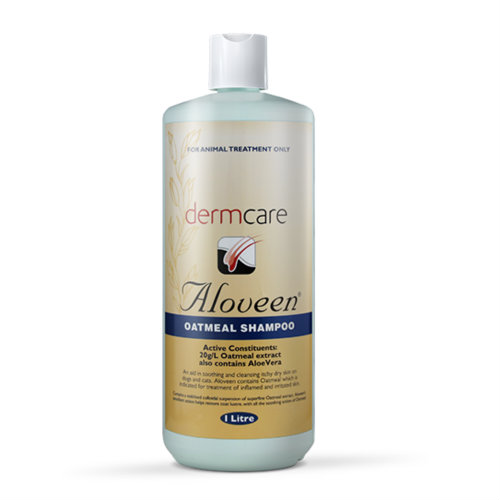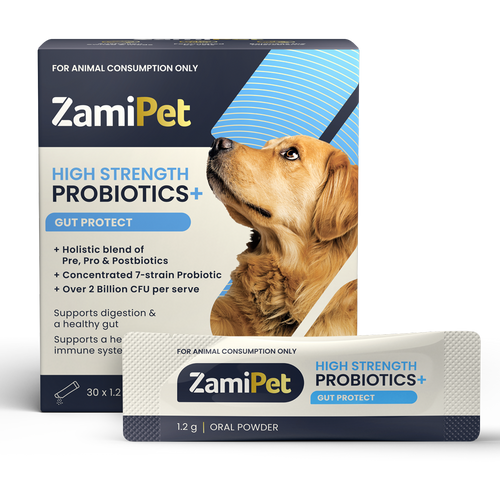Spring in Australia brings longer walks, sunnier parks… and a rise in seasonal dog allergies. From itchy skin to constant paw licking, many dogs struggle with allergy symptoms this time of year. In this article, we’ll share how to spot the signs, reduce exposure, and explore the best treatments for dog allergies
On this page:
- How to Identify Dog Allergy Symptoms
- How to Minimise Your Dog’s Allergen Exposure
- Boosting Immunity and Improving Skin Care
- When to Visit the Vet: Treatments for Severe Dog Allergies
Archie, our spirited Beaglier, knows this all too well. He loves his daily park runs, nose down, tail wagging, living his best dog life. But each spring we’d notice dog allergy signs kick in: red paws, itchy ears, endless scratching. It wasn’t just uncomfortable, it was heartbreaking to watch.
And Archie isn’t alone. Vets across Australia report a surge in dog allergy cases every spring. Pollens from rye grass, couch grass, and common weeds can trigger flare-ups. Add in dust mites or mould spores when the weather warms, and suddenly your dog’s perfect spring romp turns into weeks of discomfort.

How to Identify Dog Allergy Symptoms
Dogs can’t tell us “my skin’s itchy”, but they show us in other ways. The tell-tale signs include:
- Skin irritation: Scratching, licking, or biting at paws and skin. Look for red, inflamed patches or scabs, especially in folds, underarms, and between toes.
- Paw chewing: Dogs often chew their paws after walks through grass. It’s not just a habit, it’s a reaction to allergens lodged in the skin.
- Ear problems: Shaking, scratching, or a yeasty smell from the ears often signals allergies. Left untreated, this can develop into painful infections.
- Eye and nose discharge: Watery eyes, runny noses, or sneezing suggest airborne allergens like pollen or dust.
- Respiratory issues: Occasional sneezing is fine, but persistent coughing or wheezing is a red flag for vet attention.
Identifying the right “type” of dog allergy symptom (skin, paws, ears, eyes, or breathing) helps you and your vet target treatment, rather than chasing every itch. Catch these early, and you can often prevent them from escalating into painful skin infections.

How to Minimise Your Dog’s Allergen Exposure
Managing Archie’s dog allergies taught us one thing: the earlier you intervene, the easier life gets for both dog and human.
Simple changes can make a huge difference. None of these steps were dramatic. But together, they turned Archie’s spring from a season of constant scratching into one where he could enjoy the outdoors again.
Keep Your Home Clean and Allergen-Free for Your Dog
Dog allergies don’t just happen on walks; your home can be a hotspot, too. Dust, pollen, and dander settle into carpets, furniture, and even your dog’s bed, where they can keep triggering flare-ups long after playtime is over.
A few simple habits go a long way. Regular vacuuming and washing your dog’s bedding once a week helps strip away irritants before they build up. If you live in a high-pollen area, an air purifier with a HEPA filters can make a noticeable difference. By trapping microscopic particles, it keeps the air cleaner and gives your dog a break from the constant exposure.
COWAY Airmega Mighty Air Purifier
If pollen levels are high in your area, an air purifier can make a huge difference not just for you, but for your dog too. The COWAY Airmega Mighty Air Purifier is designed to strip allergens like pollen, dust, and pet dander from the air, creating a cleaner, healthier indoor environment.
Reasons to Buy
- 99.9% Pollen Removal.
- Quick and Efficient.
- Traps Microscopic Particles.
- Great Value.
Reasons to Avoid
- Pricey

Planning Dog Walks to Minimise Pollen Exposure
Morning strolls might be your favourite routine, but for allergy-prone dogs they can be the worst time of day. Pollen counts peak in the early hours, which means every sniff of grass or roll in the field comes with an extra dose of irritants.
- Try scheduling dog walks later in the day when pollen levels tend to drop.
- In addition to timing, consider walking your dog on walking trails with less grass, trees, or plants that produce high pollen levels.
- Opt for beachside paths, urban areas with paved roads, or parks with minimal vegetation.
It’s worth checking the daily pollen forecast, too. A little planning can spare your dog from hours of scratching later — and keep those spring walks fun instead of frustrating.
Clean Your Dog After Walks to Reduce Allergens
Every walk is an adventure. But for allergy-sensitive dogs, it’s also a chance for pollen, dirt, and dust to hitch a ride home. Paws, legs, and bellies are the usual culprits. Left alone, those allergens can keep triggering irritation long after the walk is over.
A quick clean makes all the difference. For most dogs, a simple wipe-down after each outing keeps allergens from spreading indoors. Dog Wipes by Dr Lisa are a favourite among Aussie dog parents. They’re plant-based, compostable, and gentle enough for sensitive paws and bellies.
Dog Wipes by Dr Lisa
Dr Lisa Dog Wipes are an eco-friendly, convenient solution to clean your dog after walks, removing allergens like dirt and pollen.
Reasons to Buy
- Plant-based and gentle on sensitive areas like paws and belly
- 100% compostable and environmentally friendly
- Effectively removes dirt, pollen, and irritants
- Convenient and easy to use after walks

But if your dog struggles with regular itchy paws, wipes might not be enough. In that case, a proper rinse with plain water after every walk can be the best solution — it clears away pollen before it embeds in the skin and saves your pup from endless licking or chewing later.
That’s where the Dexas MudBuster Portable Dog Paw Cleaner comes in. Instead of wrestling your dog into the laundry sink, you simply add water, pop a paw in, twist, dab dry and repeat. Handy after trips to the dog park, after walks or hikes, or by your back door.
Dexas MudBuster Paw Cleaner
The Dexas MudBuster is a clever, portable solution for keeping muddy paws from tracking dirt, allergens, and mess into your home or car. Instead of battling your dog with a bucket or hose, the MudBuster uses soft silicone bristles and a twist-clean motion to gently wash away mud, pollen, and grit.
Reasons to Buy
- Gentle on paws – silicone bristles clean without scratching.
- Reduces allergens – great for dogs with itchy or sensitive paws during allergy season.
- Portable – perfect for hikes, rainy-day walks, or keeping in the car.
- Easy to clean – bristle insert unrolls and rinses quickly.
- Available in small, medium, and large for all breeds.
- BPA free
Reasons to Avoid
- Water required – may not be as convenient on dry walks or long road trips without access.

Finally, a quick light brush-down after dog walks is also handy for removing allergens from the coat. An easy step to keep both your dog and your home more comfortable this spring.
Bathing Your Dog to Reduce Allergens
Bathing is one of the most effective ways to wash allergens out of your dog’s coat, but the trick is not to overdo it. Too much bathing can strip away the natural oils that protect their skin.
For most dogs with mild allergies, bathing every 4–6 weeks, along with regular paw cleaning and brushing, is usually enough. Dogs with more frequent flare-ups may benefit from baths every 2–3 weeks during allergy season. In severe cases, some vets recommend weekly bathing, but this should only be done under veterinary guidance to avoid over-drying your dog’s skin.
The key is to use a gentle, soap-free shampoo designed for sensitive skin. Aloveen Oatmeal Shampoo is a vet favourite because it soothes irritation with natural oatmeal while removing pollen, dust, and dirt without drying the coat.
Aloveen Oatmeal Shampoo
A gentle, hypoallergenic shampoo designed to soothe and moisturise your dog's sensitive skin while effectively removing allergens like dirt and pollen.
Reasons to Buy
- Hypoallergenic and soap-free, ideal for sensitive skin
- Contains natural oatmeal to soothe irritation
- Moisturises and conditions the skin and coat
- Effectively removes dirt, pollen, and allerge
- Gentle enough for regular use
Reasons to Avoid
- Won’t treat underlying infections (requires medicated shampoo).

Backyard Allergens to Watch Out For
Allergies don’t just come from parks — sometimes they start right in the backyard. Common groundcovers like Wandering Trad (Tradescantia fluminensis) and Moses-in-a-cradle can trigger itchy rashes and recurring skin flare-ups when dogs brush against them. If your pup is prone to allergies, it’s best to remove or fence off these plants.
On the flip side, there are plenty of pet-friendly landscaping options that look great and won’t irritate your dog’s skin. Safe choices include clumping grasses, Calatheas, Bromeliads, Bottlebrush, and Melaleuca plant. These not only brighten up your garden but also keep your pup comfortable during their backyard adventures.
Boosting Immunity and Improving Skin Care
A strong immune system is your dog’s best defence against allergies. The healthier their gut, skin, and coat, the less reactive they’ll be to pollen and other irritants. Diet plays a huge role here — but because every dog is different, it’s best to introduce changes gradually and check in with your vet or a pet nutritionist before making big shifts.
Simple additions can make a noticeable difference: omega-3 oils to calm inflammation, probiotics to support gut balance, antioxidants from fresh fruit and veg, and high-quality protein to keep skin strong and resilient. The goal isn’t just to treat flare-ups, but to give your dog the internal tools to fight them off in the first place. Before altering your dog’s diet, always check dosing with your vet, especially if your dog is on other medications.
Boosting Omega-3s
Omega-3 fatty acids are one of the simplest ways to calm allergy flare-ups from the inside out. Found in fish oils, they have natural anti-inflammatory properties that help reduce skin irritation and soothe itchy hot spots.
For Archie, adding a daily splash of NAS Omega Oil 3, 6 & 9 to his food made a noticeable difference. Not just in easing allergy symptoms, but also in keeping his coat glossy and his joints moving comfortably.
NAS Omega Oil 3, 6 & 9
A high-quality supplement designed to improve your dog's skin, coat, and joint health while reducing inflammation and allergic reactions.
Reasons to Buy
- Rich in Omega-3, 6, and 9 fatty acids for comprehensive skin and coat care
- Helps reduce inflammation and soothe allergy-related itching
- High-quality and natural ingredients designed for optimal absorption
- Also supports joint health and mobility
Reasons to Avoid
- Some dogs dislike the taste of fish oils (mix well with food).
- Results are gradual — not a quick fix.

Probiotics and Digestive Enzymes
A healthy gut is the foundation of a strong immune system. For allergy-prone dogs, that matters because the better their digestion and nutrient absorption, the less reactive their bodies are to pollen, dust, and other triggers.
Probiotics introduce beneficial bacteria, while digestive enzymes help the body break down food more effectively. Together, they improve gut balance, strengthen the immune response, and can even reduce issues like loose stools and tummy upsets that often flare alongside allergies.
One easy option is ZamiPet High Strength Probiotics+ Gut Protect. A holistic blend of prebiotics, probiotics, and postbiotics in simple single-serve sachets.
ZamiPet High Strength Probiotics+ Gut Protect
A triple-action gut health supplement that supports digestion, balances the microbiome, and strengthens immune health.
Reasons to Buy
- Contains prebiotics, probiotics, and postbiotics for full-spectrum gut support.
- Helps boost immunity and reduce allergy sensitivity.
- Can aid in managing diarrhoea, loose stools, or tummy upsets.
- Convenient single-serve sachets = no messy dosing.
- Suitable for dogs of all sizes.
Reasons to Avoid
- Not a quick fix — results build over weeks.
- Some dogs may dislike the taste (mix with food to help).

Natural Antioxidants
Allergies can put a dog’s immune system under constant stress. That’s where antioxidants come in. They neutralise free radicals in the body, which reduces inflammation and helps cells repair.
Everyday foods like blueberries, spinach, and sweet potato are packed with antioxidants and safe for most dogs in small amounts. Mixed into meals or offered as treats, they provide a natural boost that supports overall immune health and helps allergy-prone dogs cope better during high-pollen seasons.
High-Quality Protein
Protein is the building block of healthy skin and a resilient immune system. Dogs fed on poor-quality proteins may struggle with nutrient absorption, leaving their skin barrier weaker and more prone to irritation.
Switching to high-quality, easily digestible protein sources, like salmon, turkey, or single-source premium kibbles, helps reduce the risk of dietary sensitivities while giving your dog the nutrients they need to repair and protect their skin.

When to Visit the Vet: Treatments for Severe Dog Allergies
Sometimes at-home care isn’t enough. If your dog’s allergies lead to constant scratching, inflamed skin, or recurring ear infections, it’s time to book a vet visit. Left untreated, these dog allergy symptoms can spiral into painful infections and ongoing discomfort.
A vet will often recommend the same preventative steps you’re already taking — baths, paw cleaning, diet support — but they can also provide medical treatments for more immediate relief:
- Steroids – In more severe cases, short courses of steroids can rapidly calm inflammation. Because of potential side effects, these are only used under veterinary supervision and usually as a last resort.
- Medical shampoos – Prescribed hypoallergenic or medicated shampoos can soothe irritated skin and strip allergens away more effectively than over-the-counter options. These are especially helpful if secondary infections have developed.
- Antihistamines – Often the first step for seasonal allergies, they reduce itchiness and irritation so your dog can rest and recover. Some are safe for home use, but dosing should always be guided by a vet.

In Conclusion: Prioritizing Our Furry Companions’ Well-being
Dog allergies are frustrating, for us and for them. But they don’t have to steal the joy out of spring. With a mix of prevention, the right products, and timely vet care when needed, most dogs can enjoy the season itch-free.
Archie taught us that small steps matter: wiping paws, choosing the right shampoo, supporting his diet, and knowing when to call the vet. It all added up to calmer skin, fewer flare-ups, and a much happier pup.

Every dog is different, but one thing’s the same. Their comfort is worth it. By staying proactive and informed, we can help our dogs keep doing what they love most: sniffing, rolling, running, and living their best springtime life.






